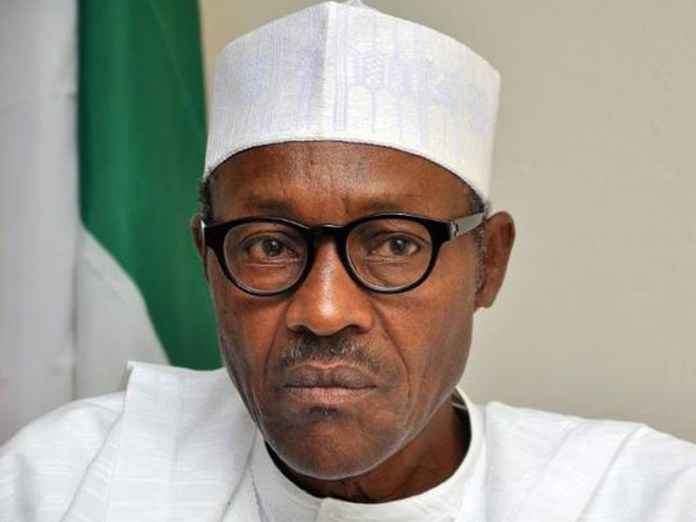Editorial
Editorial: HSBC, UBS exit: Red flag for the economy

The closure of their offices and leaving the country by two international banks should be a cause for concern to this government; unfortunately nothing has been said about it. Last week, the HSBC and UBS banking corporations exited the country so unceremoniously. They did not give any reasons but in July 2018, HSBC released a report on country outlook which was damning.
It is a sign that all is not well with the economy and clear vote of no confidence on the government’s economic policies and management. In the report the bank raised strong issues with the government economic policies concluding the future portends dire consequences for the economy. Their position is that foreign investment has declined drastically in the past one year.
“Higher oil prices have boosted Nigeria’s external position and provided a veneer of macro stability…but the economy’s oil dependency and structural shortcomings are evident in a tepid pace of growth and fiscal fault lines…while national elections pose a near-term risk to the outlook…” it said.
“Fiscal expenditure will remain dominant by recurrent spending despite attempts to boost capital investments. Efforts to boost non-oil tax revenue will be constraint by weak bureaucratic capacity and low economic growth. Constrained by a crippling infrastructure deficit, economic growth will be well beneath level needed to boost job creation and increasing living standard.
Projecting ahead the report concluded: “… we expect major unrest to continue in 2020-2022 as comprehensive solutions prove too complex and costly to implement in the medium term.”
The reports identified 10 critical areas of concern and challenge, which leave the country vulnerable and in dire strait. These include the structure of the economy which has remained dependent on oil; high oil price now at over $80 per barrel with attendant high cost of import of petroleum products and consequently raising the cost of subsidy; contraction of the economy in spite of rising of price; budget delay and rising deficit, Election risk and inflation; falling real wages, rising unemployment; the reform plan and its problems; Doing Business survey; too close to call poll and a second term economic risk.
The report was followed by another one issued by the Economist Intelligence Unit, (EIU) which came to similar conclusions.
Although government spokespeople dismissed the reports as vexatious the banks have matched their words with action to demonstrate their convictions. Again government action against the communications giant, MTN has raised serious issues about its disposition to foreign investment and application of rule of law in disputes with business interests.
Information from global sources indicates that the MTN affair is a red signal to most foreign investors that the government is hostile to business. But this is not to condone breaches where they occur; however, business issues are carefully handled because of their implications. The direct involvement of government through the Attorney General and minister of Justice was unnecessary and portrayed government as desperate.
Their exit means loss of jobs and incomes for Nigerians working in these banks and other potential opportunities they could provide to the economy and the people. Divestment from an economy by major investors is a bad sign and statement on the future of the country.
Several other foreign companies have also left the country in the past year, fearing the coming elections and the prospects of the economy under this administration. Procter and Gables, P&G one of the largest multinationals in the world also announced its divestment from Nigeria early this year citing hostile business environment.
It does not take expertise in economics and finance to know that the economy is in deep trouble regardless of what the government is saying to the contrary. The government that is spending 68 percent of its recurrent expenditure to service debt; borrowing to meet recurrent expenditure – pay salaries; borrowing to fund capital projects; a N1.9 trillion deficit; 18 million unemployed youths; a N1.2 trillion subsidy on fuel, and huge infrastructure deficit cannot honestly disclaim the validity of those reports.
The central bank had admitted foreign direct investment fell to N379.84bn ($1.2 bn) in the first half of the year from N532.63bn ($1.7bn) last year, at least confirming one of their conclusions. But it added that the outlook for the Nigerian economy in the second half was “optimistic” given higher oil prices and production, but rising foreign debt and uncertainty surrounding the 2019 presidential election was a drawback.
Also Nigerian banks have been trying to raise fresh capital after huge loan losses worsened by an economy that has just emerged from a recession, making them hardly a source of funding for the economy. The central bank also said three lenders failed to meet its minimum liquidity ratio of 30%, without naming them.
The HSBC research had noted that a second Buhari term “raises the risk of limited economic progress and further fiscal deterioration, prolonging the stagnation of his first term, particularly if there is no move towards completing reform of the exchange rate system or fiscal adjustments that diversify government revenues away from oil”.
This newspaper believes that much needs to be done to address some the challenges facing the economy raised the banks. Government should quit playing the ostrich or chasing shadows and confront the problems head long. Although they are quick to blame the past regime and the oil price-fall induced recession for the parlous state of the economy, the truth is that the government is the architect of its problems by pursuing an obsolete and discredited economy policy based on state control.





